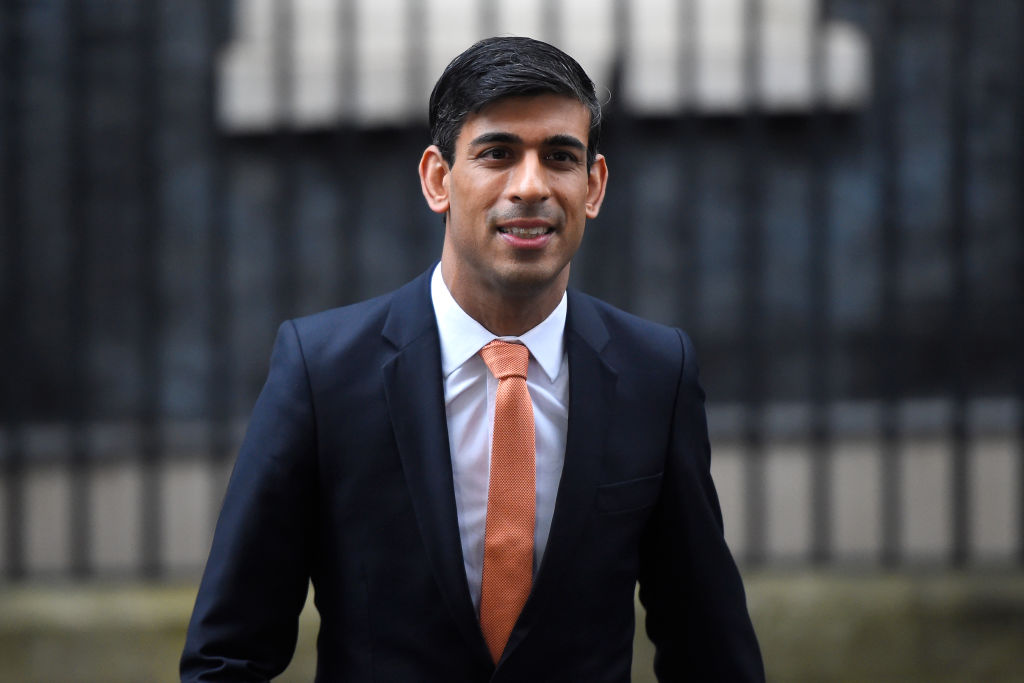This week Rishi Sunak ruled out direct government intervention to protect homeowners from impending catastrophe. It’s a welcome development – bailing out mortgage debtors would be financially ruinous and grossly unfair on renters. But just a few days ago the Prime Minister was ordering banks to shield borrowers from surging rates, and the Treasury still insists that the chancellor wants banks to ‘live up to their responsibilities’ – the vagueness of which leaves a lot to be desired. There are reports of ministers working with banks to offer more indirect help, like payment holidays.
The government has led people to believe that politicians will shield them from any hardship
It’s unclear whether the Tories will buckle and end up subsidising mortgages anyway. This is a party, after all, which once dismissed the idea of a windfall tax before U-turning, blew £70 billion of taxpayer money on furlough, and pushed through the extortionate Energy Price Guarantee. Downing Street’s careful statement has also left open the door to indirect intervention – perhaps with the reintroduction of mortgage tax relief.
For 13 years, successive Conservative governments have made countless concessions when it comes to government intervention – to vested interests, lobby groups, charities, Nimbys, ‘the science’ – and each capitulation has pulled them away from their core principles of personal autonomy, individual responsibility and free(ish) markets.
In doing so they have prioritised short-term gains over policies that could have delivered rewards in the longer term. They have become addicted to never-ending interventionism, all to correct politically difficult headlines.
The government is even reportedly considering ‘voluntary’ price controls on supermarket essentials. It was the free-market economist Milton Friedman who once said ‘we economists don’t know much, but we do know how to create a shortage. If you want to create a shortage of tomatoes, for example, just pass a law that retailers can’t sell tomatoes for more than two cents per pound. Instantly you’ll have a tomato shortage. It’s the same with oil or gas.’
Meanwhile, so many U-turns have been performed that it’s hard to keep up: last week alone the government decided to delay both a ban on buy-one-get-one-free deals for so-called ‘junk food’ and a new tax on packaging, after concerns were raised over the costs it would add to shopping bills.
It’s not hard to see how we got into this mess or how MPs box themselves into a corner by trying to be all things to all people. Deregulating is hard: the losers are obvious and the winners probably won’t notice, let alone bother to thank the party in power. Removing regulations is complicated and time-consuming.
But as a result, rather than buccaneering Britain, we have become Lilliput. Everything that moves is set to be regulated, and then whatever becomes expensive thanks to these regulations has to be subsidised. The effects of this are becoming obvious. The government cannot get people back to work or stop them from retiring. The NHS workforce has never been larger while the health backlog rises. Buy-to-let is being destroyed, with landlords driven out of the market by a never-ending string of regulations. Housing is a national scandal – a lack of supply is driving up prices, leaving people with little choice but to take out mortgages they can perhaps only just afford. Net zero – the totemic policy of our time – was waved through parliament without a proper debate. The nanny state is being allowed to take on new frontiers, from vaping to ‘ultra processed foods’.
These nanny state politics are actively eroding people’s pay packets at a time when politicians are lamenting our cost-of-living crisis. Recent analysis by the Institute of Economic Affairs has shown that, without the delays to plastic packaging and the planned ban on BOGOF deals for ‘junk food’, government health and environmental interventions will add up to £1,035 to consumer bills between now and the end of next year.
It’s time ministers acknowledged their own role in the current crisis. The government has led people to believe that politicians will shield them from any hardship. It has introduced knee-jerk regulations in the pursuit of short-term favourable headlines while refusing to sunset the ones we inherited from the European Union. This may seem like the easiest way to get through the day, but it’s not helping the Tories in the longer term. Half the time, their efforts won’t even be acknowledged. The current administration cannot beat Labour on subsidies, bans, taxes and regulations. It’s time they stopped trying.






Comments